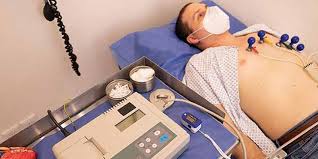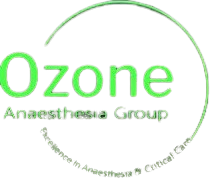
Cardiac Course
Cardiac Course
Introduction
The Cardiac Course is a comprehensive educational program designed to enhance the knowledge and clinical skills of healthcare professionals in the diagnosis, treatment, and management of cardiovascular diseases. Cardiovascular diseases remain the leading cause of morbidity and mortality worldwide, making timely recognition and management critical. This course focuses on both the theoretical foundation and hands-on practice necessary for providing high-quality cardiac care in emergency, inpatient, outpatient, and critical care settings.
Course Objectives
Upon completion of this course, participants will be able to:
- Understand the anatomy and physiology of the heart and vascular system.
- Recognize signs and symptoms of common and life-threatening cardiac conditions.
- Interpret diagnostic tests such as ECG, echocardiograms, cardiac enzymes, and stress tests.
- Manage acute cardiac events including myocardial infarction, arrhythmias, and heart failure.
- Apply pharmacological and non-pharmacological treatment strategies.
- Perform or assist with cardiac procedures including defibrillation, cardioversion, and basic echocardiography.
- Educate patients on lifestyle changes and preventive measures for cardiovascular health.
Target Audience
This course is ideal for:
- Physicians (Cardiologists, Emergency Medicine, Internists)
- Nurses and Nurse Practitioners
- Paramedics and Emergency Medical Technicians (EMTs)
- Physician Assistants
- Medical and nursing students
- Allied health professionals involved in cardiac care
Curriculum Overview
The curriculum includes the following core modules:
1. Cardiovascular Anatomy and Physiology
2. Pathophysiology of Cardiac Diseases
3. Cardiac Assessment Techniques
4. Electrocardiogram (ECG) Interpretation
5. Acute Coronary Syndromes (ACS)
6. Arrhythmias: Recognition and Management
7. Heart Failure and Cardiomyopathies
8. Cardiac Pharmacology
9. Cardiac Imaging and Diagnostic Tools
10. Emergency Cardiac Care and Advanced Cardiac Life Support (ACLS)
11. Cardiac Rehabilitation and Preventive Cardiology
Practical Training
Hands-on training is an essential part of this course. Participants will practice:
- ECG reading and interpretation
- Use of defibrillators and monitors
- Basic cardiac ultrasound techniques
- Simulated scenarios for cardiac arrest and acute chest pain
- Medication administration and IV access in cardiac emergencies
Assessment and Certification
Participants will undergo knowledge assessments, skill evaluations, and case-based exams. A Certificate of Completion will be awarded to those who successfully meet the course requirements. CME or CEU credits may be available depending on institutional accreditation.
Conclusion
The Cardiac Course is an essential training for healthcare providers involved in cardiac care. It bridges the gap between theoretical understanding and clinical application, empowering professionals to deliver high-quality, evidence-based care. Through an integrated learning approach, the course prepares clinicians to respond confidently to cardiac emergencies, manage chronic conditions, and educate patients on cardiovascular wellness. In a world where cardiovascular disease remains a leading health challenge, this course is a vital tool for any modern medical provider.
.Date
na
Course Faculty
Dr Balaji Asegaonkar
Course Syllabus
Introduction
Course Objective
Course Fees
na
